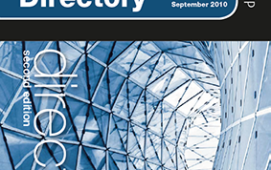
As the Middle East and North Africa (MENA) region undergoes a significant evolution from its traditional reliance on oil revenues to establishing itself as a dynamic financial market, exchanges and market intermediaries in the region are embracing advanced technologies to support their burgeoning financial services ecosystems. For international firms looking to take advantage of this trend and trade the MENA markets, what are the practical considerations?
This will be the subject of A-Team Group’s upcoming webinar on 20th May 2024, ‘Trade the Middle East & North Africa: Connectivity, Data Systems & Processes’, featuring Lee Anthony Hodgkinson, Chief Strategy Officer of Tadawul Group, the parent company of Saudi Exchange, and Rami El-Dokany, Secretary General of the Arab Federation of Capital Markets (AFCM).
Saudi IPOs – bucking the international trend
From the perspective of the international capital markets, it could be argued that the MENA region has long been overlooked. However, recent political restructuring, especially in Saudi Arabia, has significantly elevated its economic profile. In 2023, Saudi Arabia’s stock market ranked twelfth globally in terms of market capitalisation, and is on the rise. The GCC (Gulf Cooperation Council) countries, particularly Saudi Arabia and the United Arab Emirates, have shifted from being net exporters to net importers of capital. And the listing of Saudi Aramco – the world’s leading hydrocarbon producer – on the Saudi Exchange in December 2019, led to significant investments in trading infrastructure and regulatory frameworks in the region, in order to meet global standards.
One of the unusual aspects of the Saudi Arabian stock market is its increasing number of listings, which contrasts with the global trend of declining IPOs. “CEOs of most exchanges in the world often complain about the lack of IPOs, that IPOs are declining. But in Saudi, it’s the other way around – private equity people are complaining that everyone wants to go public!” comments Rami El-Dokany, in conversation with TradingTech Insight. “What’s interesting is how Saudi Arabia created this culture, how they’ve increased their investor base, how they want to have a local investor in every household. This strategy has definitely created a strong, liquid market, supported by a strong IPO pipeline.”
With over 40 IPOs on the Saudi Exchange (Tadawul) last year and another 50+ anticipated in 2024, the region clearly offers unique investment opportunities. “The comprehensive infrastructure, robust clearing environments, and solid regulatory frameworks make it a particularly attractive market for international firms when compared to other regions,” says El-Dokany.
Attracting local liquidity
The growing number of listings on GCC-based venues, and the fact that exchanges are now using advanced matching and clearing technologies from the likes of NASDAQ and LSEG, is helping them gain significant momentum. Even outside the GCC, markets like Egypt and Morocco are vibrant, with Egypt – historically the leading exchange in the region – the earliest to adopt a NASDAQ engine in the early 2000s.
“From a macroeconomic perspective, some countries in the region – Egypt in particular – have suffered from unprecedented inflation rates, which has driven local liquidity to all-time highs,” points out El-Dokany. “Historically on the Egyptian market, investors would either put money into time deposits in banks, or would buy and flip real estate.”
AFCM has done much work with local institutions, FinTech companies and new online brokerages to attract local liquidity and increase the number of retail investors to the market, including making market access simpler for younger investors eager to learn about trading, says El-Dokany. “Moreover, we identified and addressed technological bottlenecks, which has been critical,” he says. “For instance, last year, we implemented changes that more than doubled the number of retail investors from 150,000 to almost 360,000. These technological enhancements have significantly improved market accessibility and participation.”
Asset class dynamics
Equities are the most heavily traded asset class in the region, with a diverse liquidity landscape. Local liquidity, sourced from retail and local institutional investors, is predominant, with International interest from global hedge funds and asset managers typically concentrated around new listings. “We’ve observed a significant involvement from regional pension schemes, insurance companies, and even postal services, which have only recently begun investing in equities,” says El-Dokany. “Markets such as Egypt and Saudi Arabia are experiencing growth in retail liquidity, each for different reasons. International investors tend to focus more on listings and IPOs, which sustains high levels of market activity.”
In terms of fixed income, sovereign bonds are more heavily traded than corporate bonds, with good reason, suggests El-Dokany. “Corporate bonds are lagging behind, because accessing bank credit is much easier than issuing a corporate bond with all the associated regulations, even if it’s cheaper by a few basis points. So corporations in the region would prefer to go through a bank rather than issuing bonds.”
ETFs are also increasingly traded, with the Abu Dhabi Securities Exchange (ADX) acting as the major regional hub. The value of ETF trading on ADX rose by over 364.2% in the year to October 2023, reinforcing the exchange’s leading position. As for other asset classes, MENA boasts robust infrastructure for its exchange-traded derivatives and commodities markets, with the Dubai Gold and Commodities Exchange being the largest. FX activities are predominantly bank-driven.
Capitalising on the data
Compared to major global markets like the London Stock Exchange Group (LSEG), where data sales contribute significantly to revenue, data is less commercially utilised in the MENA region, according to El-Dokany. “Management tends to be more focused on increasing trading volumes, and they are under-utilising the power of data,” he says. “This is where AFCM is helping out with capacity building programs, webinars, training, bringing in the data vendors to explain to the exchanges the value that their data holds. And we’re seeing many markets making good steps and investing into the data space. However, we haven’t yet seen a synchronised plan to understand what they actually want to do with the data, where they’re heading.”
From a data residency perspective, stock markets and their associated data centres are typically viewed as public utilities in the region, but that is changing, says El-Dokany. “There’s a prevailing belief that data should remain within national borders. Consequently, data centres are highly valued,” he says, adding that AFCM has been working towards a model where exchanges are not required to own their own data centre within the country’s borders. “We’ve been facilitating discussions with Google in Saudi Arabia and Microsoft in Egypt, to establish local cloud services,” he says, adding that these initiatives also align with exchanges reducing their carbon footprint.
To learn more about the growing opportunities that the MENA markets offer, and the data and technology capabilities required to succeed in this exciting region, register for the upcoming webinar, Trade the Middle East & North Africa: Connectivity, Data Systems & Processes.
Subscribe to our newsletter



